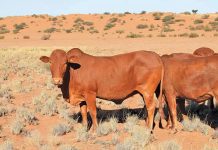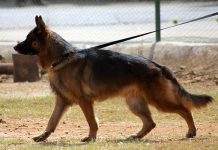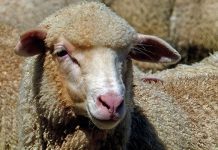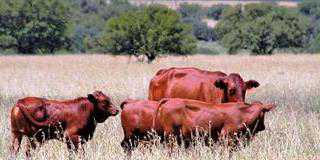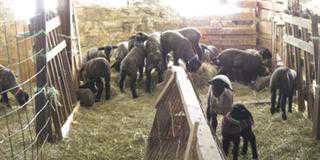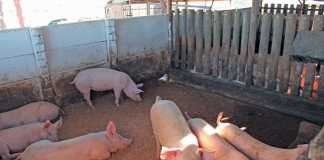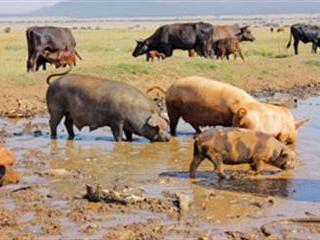
Pigs are heavy animals with small feet. This can lead to arthritis (sore joints) and various injuries. If a pig won’t put weight on a leg and won’t get up for food, suspect lameness. Examine the pig, and if there are no obvious sores or swellings, call a vet. Sometimes slaughtering may be the best option.
Roundworms
Roundworms are the most common parasite in pigs. They have a worm-like appearance, live in the gut and cause weight loss.
Young pigs are most at risk and a heavy infestation can block the gut and cause death. Untreated worms can permanently reduce the pig’s growth. Dose the pig with the parasite specific dewormer injected, drenched or dosed in food.
Measles
Pork measles is caused by tapeworm parasites that live in the muscles of pigs. The pig is not usually affected but can be in pain and battle to move around. When people eat undercooked pork infected by tapeworm cysts, tapeworms develop in their intestines and make them very sick. Pigs cannot be treated for this disease but preventive measures can be taken by practising good hygiene and stopping them from wandering about where they eat human faeces.
Abscesses
Injuries from fighting or injections can cause abscesses (deep sores filled with pus). These are difficult to treat and may need surgery by a vet.
Salt poisoning
Some feeds, especially swill from restaurants, may contain too much salt for pigs. On a high-salt diet, with too little water, pigs can die of salt poisoning. Pigs affected appear to be blind, fall over, and may vomit and have seizures.
This is a good reason not to feed your pigs restaurant leftovers.
Diarrhoea
An outbreak of diarrhoea is most likely when pigs are crowded together, and is usually seen in piglets. It may occur after a change in food, or may be a symptom of a disease. Piglets can die of diarrhoea and you’ll need help from a vet or animal health technician to treat this condition.
Pneumonia
Pigs with pneumonia have difficulty in breathing, may stop eating, and there may be a discharge from the eyes and nose. Again, you’ll need the help of a vet or animal health technician to diagnose and administer the appropriate antibiotics for the infection.
Lumpy skin disease
This causes lumps on the body, including the udder and teats. It’s a controlled disease and, if suspected, should be reported to your nearest state vet or animal health technician.
Sources: Farming with Pigs (Western Cape Department of Agriculture). Guide to Small-Scale Pig Farming, by EH Kemm (Department of Agriculture). Common Diseases of Small Pig Herds, by M-L Penrith (department of agriculture). South African Pork Producers’ Association (www.sapork.com).




